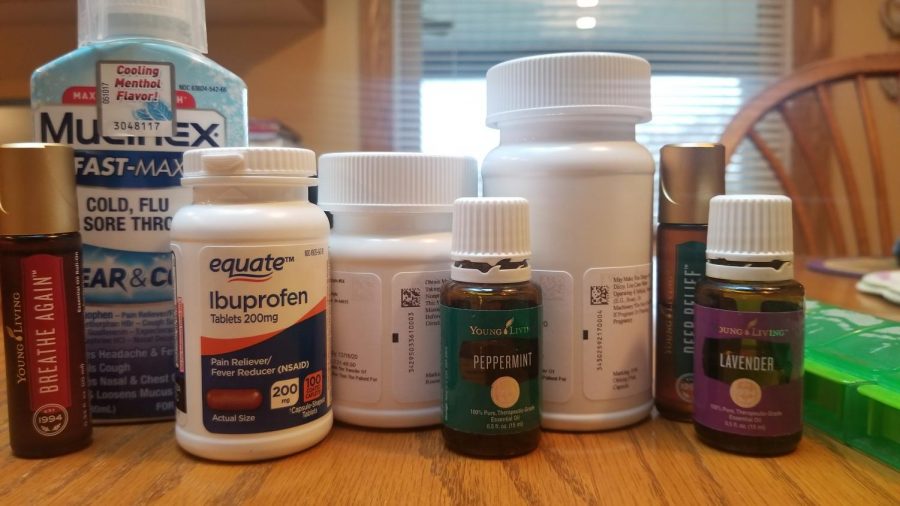Adaptive antibiotics
Medicine evolves, expands as time goes on
Modern medicine, as most know it today, came about following the Industrial Revolution in the eighteenth century according to Medical News Today. The revolution brought about a wave of new manufacturing processes and technology in many countries, including the United States. Just one of the many products of the Industrial Revolution was advancements and new kinds of medicine.
Most people use some form of medicine, whether it be pharmaceutical, over-the-counter or natural remedies. As time goes on, medicine is becoming something more commonly used by the average person. Use of alternative medicine is also on the rise, which includes relaxation therapies such as yoga, acupuncture, meditation and herbal medicine.
In years past, professional medicine and even natural remedies were only used when medical care was absolutely necessary. Even when modern medicine was first used regularly back in the eighteenth century, not everyone followed the trend. People did not always have medicine in the past, so many did not see any value in it. Fast-forward to today, where people now rely on all kinds of medicine and therapies, rather than waiting out a head cold. People often end up taking over-the-counter drugs or applying essential oils for example, in hopes of speeding up the recovery process.
According to Medical News Today, the first antibiotic ever seen on the market, Prontosil, was developed by German bacteriologist Gerhard Domagk in 1932. While that was a long time ago, it still holds relevance today. Even as medical technology continues to advance, the majority of medicine used by people every day can be traced back to the same properties of drugs like Prontosil that are intended to work against the average bacterial infection such as colds or the flu.
One major challenge the medical field is currently facing is an increase of antibiotic resistance, due to the overuse of prescription drugs and over-the-counter medications. Essential oil companies like Young Living, Eden Garden and even some doctors are promoting and prescribing medicine under the idea that it’s an absolute necessity and are imposing what some consider to be too much of it on patients and customers.
Doctors most commonly overprescribe medication when they are not sure if an illness is bacterial or viral, so they feel it is necessary to at least give patients something to try. When someone is prescribed antibiotics for this reason, they then become accustomed to it, and ask their doctor for something to temporarily help them before being diagnosed. The Centers for Disease Control and Prevention (CDC) discussed antibiotics in-depth in a 2017 report. The CDC believes that in order to solve antibiotic resistance, they need to provide health facilities with data for action, implementation, innovation and education. Doing this ensures that the public will be educated on the importance of using antibiotics, but only when necessary.
This use of modern medicine is also increasingly extending average life expectancies. When medicine first came about, the average life expectancy was around 35 years old, and now thanks to medical advancements, has jumped to 78 years old and older.
Through modern medicines and various forms of alternative medicines, it is evident just how much the world of medicine has evolved and expanded over time. However, while the twentieth century alone saw a high number of cured infections and illnesses, a number of unknown viruses are yet to be cured. Modern medicine continues to make headway in many areas, though challenges will only continue to present themselves over the years.



